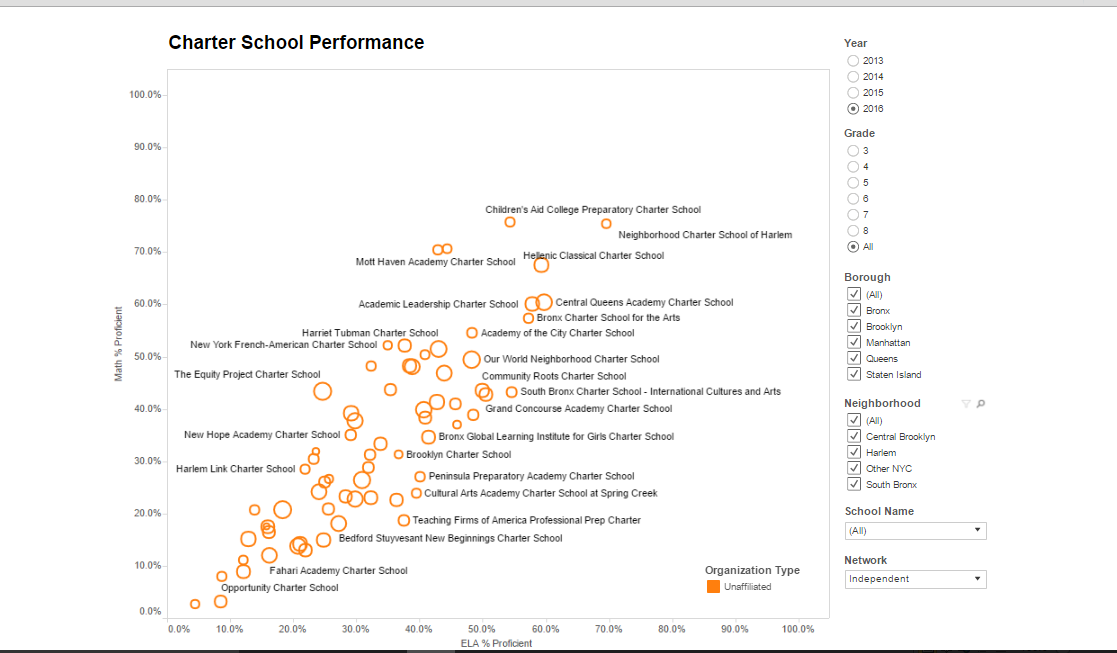A predictable war of words has erupted around interpreting the latest set of NYC test scores. The charter sector has touted its successes, with Success Academy Charter Schools front and center, and the mayor has increasingly pushed back, critiquing the results, Success Academy itself, and broadly tarring the sector.
Missed in the battle of the elephants are some other remarkable outcomes. First and foremost among them is an autism-inclusion charter school in Harlem that posted the top scores for any independent charter school, all while serving high-needs students in an authentic and responsive way.
I have written about Neighborhood Charter School of Harlem before. A school our Incubator helped start that deliberately recruits and reserves spots for students on the autism spectrum. The school has a robust program of support that integrates students on the spectrum and helps them develop socially in a safe and staged way.
This is crucially important work from a societal standpoint and would be worthy of applause for even taking on the challenge. But when you see the development of students and also the awe-inspiring outcomes, this is a lot more than a social development program, it is one of Harlem’s highest performing schools.
Outstanding Results
Take a look at the scatterplot below provided by the NYC Charter Center. Neighborhood Charter shines.

While the analysis does not take into account differences in student populations, and schools that tend to serve more disadvantaged students tend to have lower overall scores, nobody can argue that Neighborhood is “creaming” kids. And the work it is doing is much deeper than a test score.
One story from the school really struck me. A parent was talking about how her son was basically mute in school, but at Neighborhood he had started to open up, talk, make friends, and develop a previously nonexistent social circle.
The joy and contentment is evident on kids’ faces when you visit, alongside a responsive design where every class has individual supports for students.
And the results are really remarkable—75.4% of their students are proficient in math, compared to 16.7% in the district. 69.7% of kids are proficient on English language arts, compared to 21.5% for the district.
After the Rhetoric
So let’s move beyond the mayor’s history of talking loud but carrying a small stick on school reform. It really is not about charters versus district schools—at least parents don’t see it that way. And somewhere along the line I heard that this was supposed to be about parents.
It’s about good schools that treat families fairly. So please, let us move beyond the education wars in NYC, and the personal battles between the Mayor de Blasio and Ms. Moskowitz. You guys don’t like each other. We get it. We don’t care.
A good first step was the mayor’s visit to DREAM Charter (full disclosure: I was on the founding board), and I hope he goes out and sees some of the other great work happening in the community.
These fights may make us feel important as adults but they do nothing for children. And if we are honest, there is so much need in NYC that we don’t have time to waste tearing each other down, when so many families need us to work to build something better.

